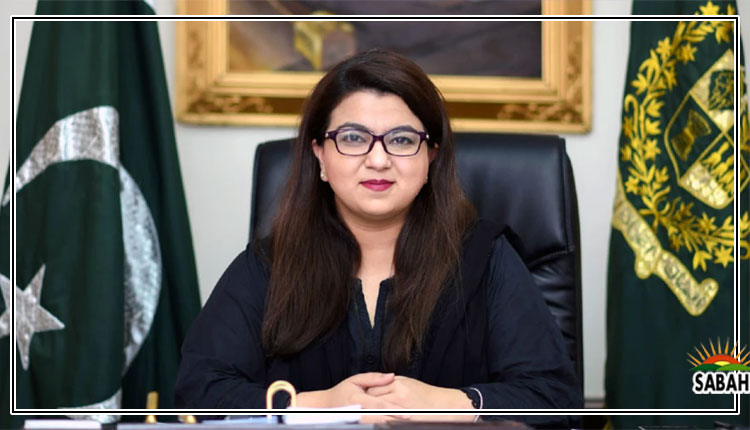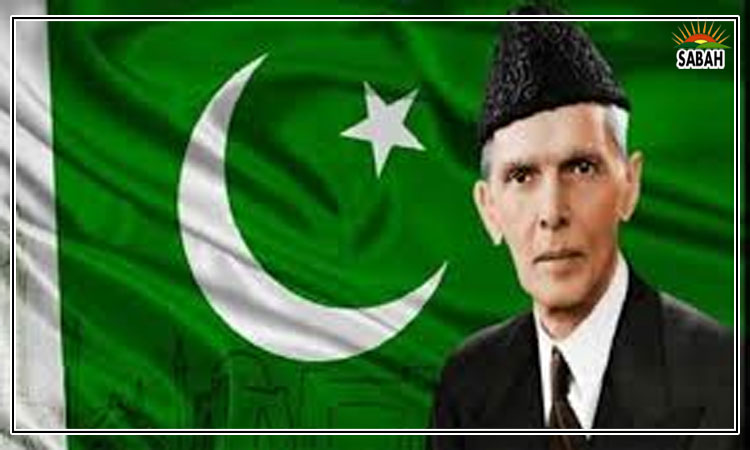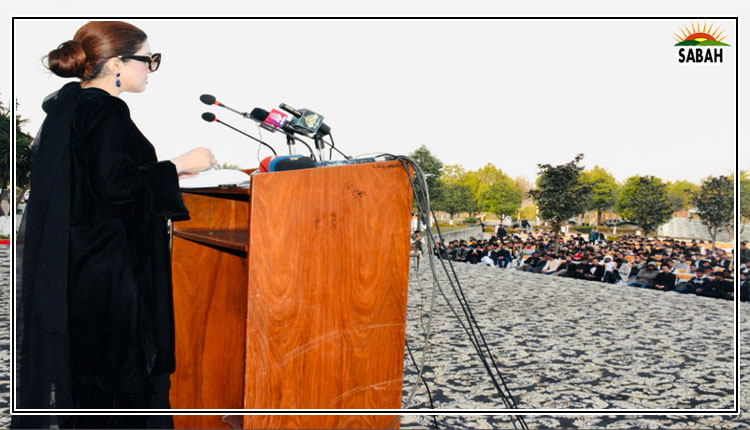Indian Supreme Court’s decision akin to death sentence for all Kashmiris: Mushaal Mullick
ISLAMABAD, Dec 12 (SABAH): Special Assistant to Prime Minister for Human Rights and Women Empowerment, Mushaal Hussein Mullick, has expressed her deep concern over the India Supreme Court’s decision to uphold the revocation of the special status of Jammu and Kashmir, stating that it is akin to death sentence for all Kashmiris.
She was addressing a seminar to commemorate International Human Rights Day organized by Parliamentarians Commission for Human Rights in collaboration with International Islamic University Islamabad.
Shafique Chaudhry (Executive Director, PCHR), Dr. Raheem Awan (DG Legal Aid and Justice Authority), Dr. Sameena Malik (Rector, IIUI), Dr. Noor Fatima and Syed Muhammad Anwar were among the participant of the Seminar.
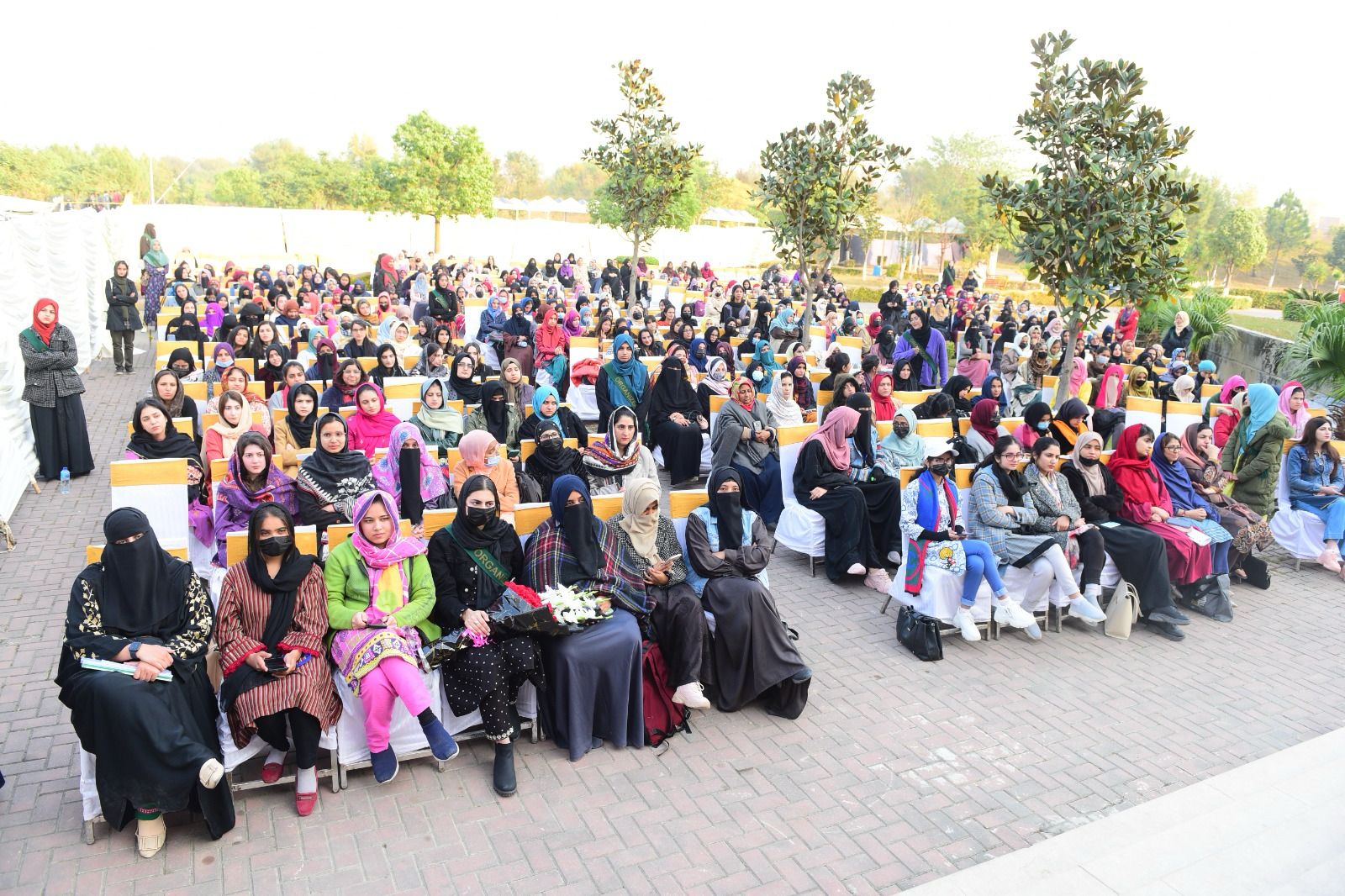
Mushaal Mullick asserted that the ongoing human rights violations by India underscore the shortcomings of the United Nations. She emphasized the necessity for the UN to go beyond mere resolutions and actively pursue their implementation. She pointed out that resolutions related to the Jammu and Kashmir dispute have remained unresolved for 75 years. Mushaal emphasized that amidst the conspicuous silence of the UN and international organizations, the alarming situations of genocide were unfolding in Jammu and Kashmir and Palestine. She urged global bodies to break their silence and take proactive measures to address the escalating humanitarian crises in those regions.
Mushaal Mullick highlighted the profound impact of human rights violations when perpetrated by states, leading to extensive mass killings and even genocide. Drawing attention to the ongoing destruction in Gaza, she pointed out the restrictive measures preventing International Aid organizations from entering Gaza, exacerbating severe shortages of essential items like medicine and food. Moreover, Mushaal said that contrary to Indian claims, the recent decision by the Indian Supreme Court served an evidence that India was not a secular nation. She emphasized that minorities in India were confronted with substantial challenges, rendering it nearly impossible for them to live freely.
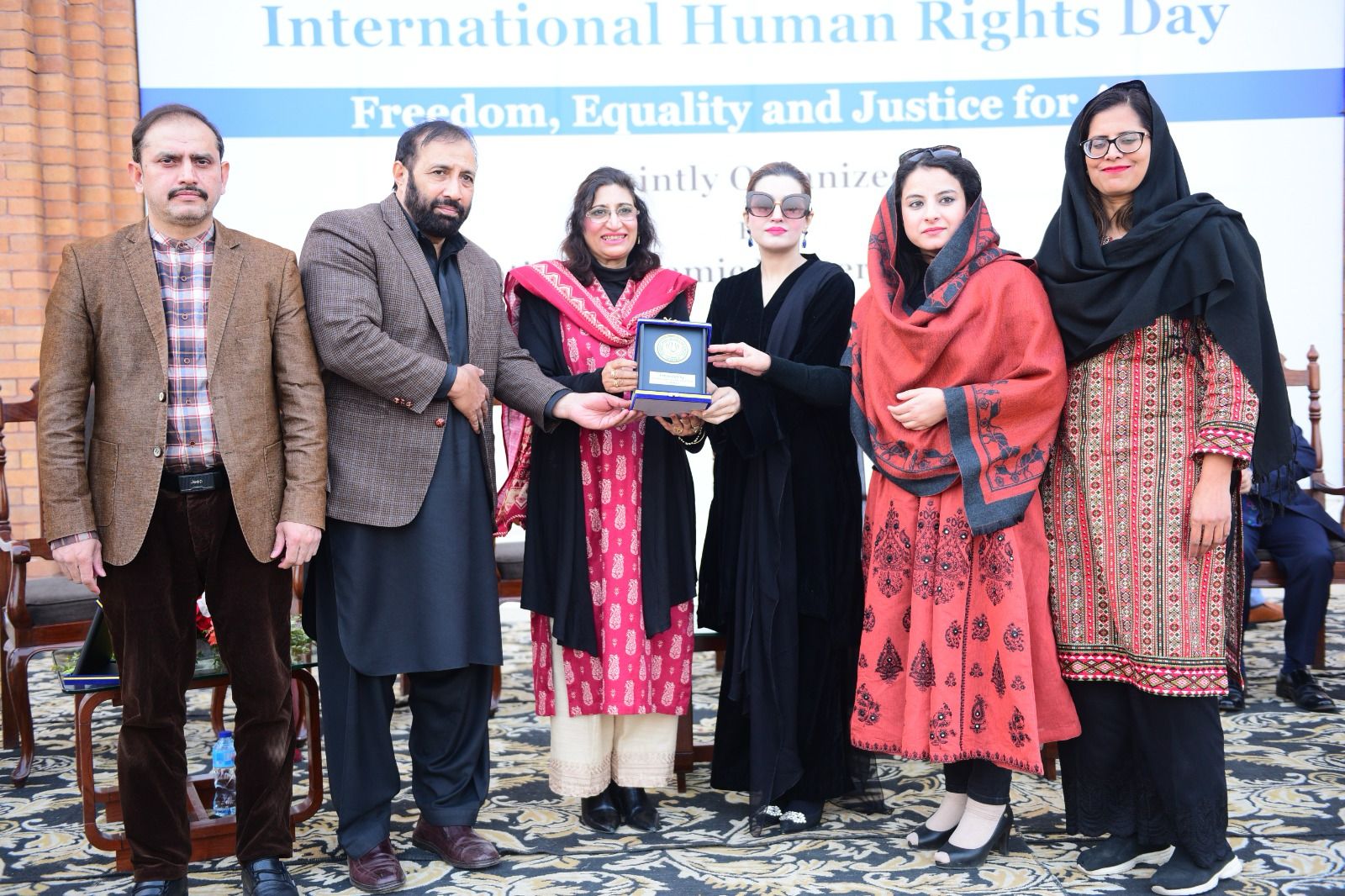
Mushaal Mullick highlighted that International Human Rights Day stands as a global reminder of the fundamental principles that uphold human dignity, equality, and justice. She emphasized the importance of utilizing this day as an opportunity for individuals, communities, and nations to reflect on the strides made in safeguarding human rights and to address persisting challenges. She called for collective action to protect and promote the rights and freedoms of every individual, regardless of race, gender, religion, or nationality.
In discussing the 100-day plan initiated by the Ministry of Human Rights to enhance the state of human rights in Pakistan, she underscored that the plan was more than just a plan—it was a comprehensive human rights charter. She highlighted the plan’s particular emphasis on eradicating gender-based violence and empowering women in society through microfinance schemes. She further stressed the significance of establishing day care centers in prisons, workplaces and educational institutions.


